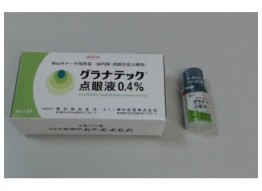Rosuvastatin tablets 5 mg for hypercholesterolemia (statin, Crestor)
What are Rosuvastatin tablets 5 mg for hypercholesterolemia (statin, Crestor)?
Rosuvastatin, a synthetic medicine classified as a statin, exerts its therapeutic effects by targeting the production of cholesterol in the liver. As an essential component of cell membranes and a precursor for certain hormones, cholesterol plays a vital role in the body. However, excessive levels of cholesterol, particularly low-density lipoprotein (LDL) cholesterol, are associated with an increased risk of cardiovascular diseases, including heart attacks and strokes. By inhibiting an enzyme called HMG-CoA reductase, which is crucial for cholesterol synthesis in the liver, Rosuvastatin effectively reduces cholesterol production and promotes its clearance from the bloodstream.
The mechanism of action of Rosuvastatin primarily revolves around its ability to lower total cholesterol levels, which includes both LDL cholesterol and high-density lipoprotein (HDL) cholesterol. LDL cholesterol, often referred to as "bad" cholesterol, tends to accumulate in arterial walls, leading to the formation of atherosclerotic plaques that can obstruct blood flow and cause various cardiovascular issues. By inhibiting the production of LDL cholesterol, Rosuvastatin reduces its concentration in the blood, thereby lowering the risk of plaque formation and related complications.
Additionally, Rosuvastatin has the desirable effect of elevating HDL cholesterol levels, which is commonly known as "good" cholesterol. HDL cholesterol functions to transport excess cholesterol from peripheral tissues and artery walls back to the liver for excretion. Higher levels of HDL cholesterol are associated with a decreased risk of cardiovascular events as it contributes to the removal of excess cholesterol from the circulatory system.
Another important aspect of Rosuvastatin's action is its impact on blood triglyceride levels. Triglycerides are a type of fat stored in fat cells and are found in the bloodstream. Elevated triglyceride levels are also linked to an increased risk of heart disease. By reducing triglyceride levels, Rosuvastatin further contributes to cardiovascular risk reduction.
Due to its potent cholesterol-lowering properties and its role in improving lipid profiles, Rosuvastatin is highly beneficial for patients at high risk of cardiovascular events. Medical professionals often recommend Rosuvastatin tablets as a preventive measure for individuals with a history of heart disease, stroke, or other risk factors, such as diabetes or high blood pressure. Moreover, patients diagnosed with hypercholesterolemia, a condition characterized by abnormally high cholesterol levels, can greatly benefit from Rosuvastatin treatment.
Clinical evidence supports the effectiveness of Rosuvastatin in achieving significant reductions in cholesterol levels. A comprehensive meta-review of 108 clinical studies, involving a substantial cohort of over 19,000 patients, revealed impressive outcomes. Total cholesterol levels were reduced by 22.1% to 44.8%, while LDL cholesterol experienced even more substantial reductions of 31.2% to 60.2%. Moreover, non-HDL cholesterol, which represents the total cholesterol content minus HDL cholesterol, saw reductions ranging from 28.9% to 56.7%. Additionally, triglyceride levels decreased by 14.4% to 26%.
Active principles: rosuvastatin
Amount: 100 tablets
Maker: Ohara Pharmaceutical Co., Ltd. / Nipro Corporation, Japan
Indications: treatment of hypercholesterolemia
How to take
Start by taking 0.5 tablet (2.5 mg of rosuvastatin) at a time, once a day. If the dosage is insufficient or a quicker progress is desired, the dosage may be increased up to 1 tablet (5 mg) at a time, once a day. Your doctor may adjust the dose according to your symptoms and age. The dose may be increased if the efficacy of the medication is not sufficient after at least 4 weeks of the treatment. However, the maximum daily intake of 4 tablets (20 mg) should not be exceeded.
These tablets will dissolve in saliva once it is placed on the tongue. However, the medicine should be swallowed with enough amount of water or saliva to ensure that it doesn't get stuck in the mouth.
Contraindications: do not use for pregnant, possibly pregnant or breastfeeding women. Do not use for patients with liver disorders.
Important information
Patient should follow the diet and exercise instructions carefully.
If an allergic reaction occurs, patient needs to stop using the medicine and consult with their doctor. If patient is taking any other medication or treatment, they should consult with their doctor in advance.




